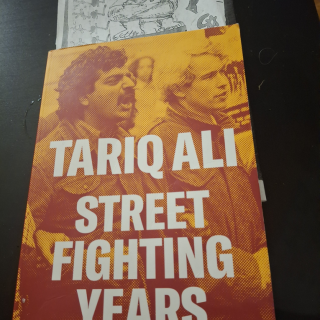Advertisement
I wasn’t bowled over by last year’s Ghostbusters remake, which seemed like a waste of a good cast. Even some of its fans seemed to like it mainly because it broke new cinematic ground by portraying women as competent professionals rather than man-obsessed flakes. This helped to make up for the fact that it wasn’t a great comedy.
That said, I wouldn’t have minded seeing the Ghostbusters team regroup long enough to interrupt the chief spirit’s reign of terror in A Ghost Story. Frankly, I don’t think the spirit himself would have minded, as he leads a pretty dreary existence. In fact, “reign of terror” is a misnomer—it’s more like a reign of tedium.
In the version of the spectral world created by writer/director David Lowery (Pete’s Dragon), ghosts have the ability to travel backward or forward through time, but they’re confined to one geographical location. Thus, the unnamed spirit in question (Casey Affleck) spends his days hanging around the ranch-style home he inhabited with his equally unnamed partner (Rooney Mara) before being killed in a traffic accident.
What does he do while hanging around? Occasionally, he has a temper tantrum and starts throwing books or dishes, but mostly he just stands and watches, unnoticed, as life goes on around him. All the while, he seems to be waiting for something, but exactly what that is remains unexplained until the end—and even then, it’s not completely clear.
Like Ghostbusters, A Ghost Story will win some fans because of its groundbreaking nature. Lowery is not afraid to test viewers’ patience by telling a spare story that unfolds in long, often wordless scenes elegantly photographed by cinematographer Andrew Droz Palermo.
In the most self-consciously offbeat scene, the spirit watches as Mara’s character returns home soon after her partner’s demise and finds a well-wisher has left her a pie. She then sits on the floor and begins devouring the pastry, forkful after forkful, as if trying to bury her emotions under a mountain of sugar and starch.
The scene, which goes on for several unedited minutes, makes it clear that the woman is distraught. My problem with it is that I realized this long before the scene was over—before it began, actually—because anyone would have been distraught in her situation. That gave my mind plenty of time to wander as the gluttony continued, asking myself questions such as “How many times did Mara have to eat that pie until they got the scene right?” And, even more distractingly, “Did she have to purge between takes?”
I suspect those weren’t the deep thoughts Lowery was seeking to inspire.
Another similarity between Ghostbusters and A Ghost Story is that the new film largely wastes its cast’s talents. Affleck, the Oscar-winning star of 2016’s Manchester by the Sea, spends most of the running time as the silent ghost, represented as a figure in a white sheet with black holes for eyes. As for the Oscar-nominated Mara (Carol, The Girl With the Dragon Tattoo), her face gets a little more screen time, but most of her scenes are so understated that they don’t begin to plumb her dramatic range.
Speaking of understatement, the relationship between the man and woman is portrayed as a series of casual discussions and minor quarrels over such things as whether they should find a new home. We don’t get much feel for the depth of connection between the two, which makes it hard to become emotionally involved in the plight of the man’s spirit when he’s forced to watch the woman get on with her life after his death.
Maybe writer/director Lowery downplays the couple’s personal relationship because he’s more focused on exploring universal themes such as the nature of existence and our desire for immortality. He seems to have a nihilistic attitude toward life, judging from a couple of scenes. In one, a volume by Nietzsche ends up on the floor during a ghostly tantrum. In another, a party guest suggests it’s useless to seek immortality by creating art because in a few billion years the universe is going to implode anyway.
If you’re attracted to such philosophical musings, you may find A Ghost Story worthwhile—especially if you’re also attracted to cinema that pushes envelopes. But even if you are, you might find yourself wishing Lowery had done that musing and pushing without hiding one lead under a sheet and stuffing the other with endless portions of pie.
Rating: 2½ stars (out of 5)
A Ghost Story (rated R) opened July 28 at the Drexel Theatre and Gateway Film Center.



